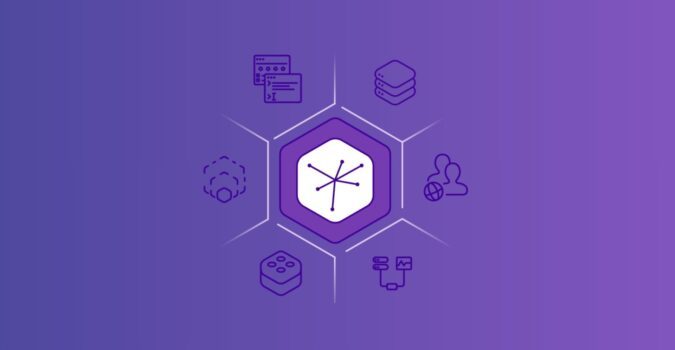Why Enterprise Software Development Demands a Strategic Approach
Large organizations need more than basic digital tools. They require robust, integrated platforms that align with business strategy, support complex operations, and deliver long-term value. Enterprise software development provides this foundation. Unlike off-the-shelf products, custom solutions are tailored to an organization’s architecture, workflows, and compliance needs, by handling everything from real-time data processing to integrating legacy systems with cloud-native tools.
When you’re operating at an enterprise scale, success demands more than technical know-how. It requires a strategic approach that blends agile development with deep architectural expertise, resulting in systems that solve today’s challenges and scale for tomorrow’s growth.
What Is Enterprise Software Development?
Enterprise software development is the disciplined process of designing, building, and maintaining digital systems that enable large organizations to operate at scale. These systems are purpose-built to support high-volume operations, cross-functional workflows, and strategic initiatives that impact the entire organization. From automating core business functions to enabling smarter decision-making, enterprise software plays a mission-critical role.
What sets enterprise software apart is its scope and sophistication. These platforms handle massive volumes of data, integrate seamlessly across departments, and support everything from operational workflows to customer-facing experiences.
Custom enterprise solutions can take many forms. Examples include enterprise resource planning (ERP) systems, internal operations platforms, advanced analytics dashboards, data management tools, and customer-facing portals. Unlike commercial, off-the-shelf software, these platforms are tailored to reflect a company’s unique business model, compliance obligations, and long-term growth strategy. That level of customization provides the strategic leverage today’s enterprises need to compete and scale effectively.
5 Benefits of Custom Enterprise Software Development
Custom enterprise software brings unmatched flexibility, control, and alignment to business operations. It allows organizations to adapt systems to their exact needs, streamlining operations, improving team productivity, and enabling more strategic use of data across departments. This tailored approach creates stronger interconnectivity across business units, reduces inefficiencies caused by generic tooling, and fosters innovation by aligning digital tools with real business workflows:
1. Tailored Workflows
Custom enterprise systems are purpose-built to reflect the way your business actually operates. Instead of forcing your teams to conform to rigid tools, the software is designed around existing processes, driving adoption, improving efficiency, and minimizing disruption during rollout. This ensures long-term alignment, adaptability, and operational resilience.
2. Seamless Integration
One of the greatest strengths of custom software development solutions is their ability to unify disparate tools and technologies. Whether it’s syncing data from legacy platforms, connecting to third-party application programming interfaces (API), or integrating with modern infrastructure, seamless integration removes silos and increases the accuracy and accessibility of business information.
3. Scalability
Enterprise systems must support growth without compromising performance. Modern, scalable architecture ensures your software can handle rising user counts, data volume, and new use cases without requiring constant rework. Whether you’re onboarding new departments or launching in a new region, your platform keeps pace and adapts with confidence.
4. Security & Compliance
Enterprise environments come with strict compliance obligations. Custom software embeds security and privacy protocols directly into the architecture, ensuring encryption, authentication, monitoring, risk mitigation, and comprehensive auditing are aligned with your industry’s standards, whether HIPAA, systems and organizational controls 2 (SOC 2), general data protection regulation (GDPR), or others.
5. Competitive Advantage
When your tools work the way your business does, you gain speed, accuracy, and strategic insight that off-the-shelf tools can’t deliver. Bespoke software empowers your teams to move faster, serve customers better, and innovate in ways that set you apart in your market with efficiency, agility, long-term impact, adaptability, performance, and precision.
These benefits make custom software development solutions a long-term investment in operational excellence, delivering measurable ROI, fostering organizational alignment, enhancing agility, and positioning businesses to scale with clarity and confidence.
Common Use Cases Across Enterprise Industries
Bespoke software development is used across enterprise industries to solve complex challenges, unlock operational efficiency, and deliver tailored digital experiences that align with sector-specific demands:
- Healthcare: In the healthcare industry, enterprise software powers secure platforms for managing patient records, monitoring compliance, coordinating across providers and departments, improving care delivery, enabling real-time insights, and supporting population health initiatives.
- Finance: In 2025, according to the Identity Theft Resource Center (IRTC), the finance sector is on track to set a record high for security breaches. This underscores the growing reliance on robust fraud detection systems, real-time analytics tools, and internal trading platforms to manage risk, uncover trends, strengthen compliance, and drive sustainable profitability through smarter decision-making and adaptive strategies.
- Logistics: For the logistics sector, enterprise solutions enable route optimization, real-time inventory tracking, warehouse automation, fleet coordination, and predictive delivery insights to streamline operations and reduce delivery times effectively.
- Education: In education, institutions benefit from student information systems, digital assessment tools, and comprehensive learning management platforms tailored to academic workflows and institutional success across all levels of education.
- Manufacturing: In manufacturing, enterprise software supports IoT, real-time production monitoring, and supply chain tools that ensure continuity, efficiency, and consistent delivery.
- Professional Services: In professional services, enterprise platforms streamline client onboarding, contract management, and project tracking. These systems centralize operations and provide actionable insights that help firms manage resources and deliver consistent results at scale.
- Retail: In the retail industry, custom enterprise applications support inventory, fulfillment, and loyalty programs. These solutions help retailers remain agile, forecast demand with accuracy, and deliver personalized experiences across physical and digital channels.
Each solution is built for high availability, compliance, and scale while supporting growth, integration, automation, and data-driven decisions across the organization.
5 Key Considerations for Scalable System Design
When building enterprise software, scalability isn’t a feature. Rather, a foundation for resilience, growth, and performance across evolving business landscapes. It ensures systems can support increasing complexity, greater user demand, and emerging technology without breaking down. Key architectural considerations include:
1. Modular Architecture
A modular design enables different parts of the system to be built, deployed, and updated independently. This flexibility minimizes system downtime, speeds up feature delivery, and simplifies maintenance, especially in complex enterprise environments with evolving business needs.
2. Cloud-Native Infrastructure
By leveraging cloud-native principles, organizations gain the ability to scale applications dynamically, improve system resilience, and reduce infrastructure overhead. This approach supports high availability, disaster recovery, and geographic distribution from day one.
3. Data Strategy
A strong data strategy unlocks enterprise insights and efficiency. Designing for data from the start ensures secure, seamless flow, enabling smarter decisions and automation.
4. Security Framework
Security cannot be an afterthought in enterprise systems. A comprehensive security framework embeds encryption, role-based access, monitoring, and regulatory compliance (e.g., HIPAA, SOC 2, GDPR) directly into the architecture, reducing risk and ensuring peace of mind.
5. DevOps Integration
DevOps practices are critical for delivering enterprise-grade software at speed. Integrating CI/CD pipelines (an automated workflow that streamlines the software development process by integrating continuous integration (CI) and continuous delivery (CD) practices), automated testing, and infrastructure-as-code enables teams to deploy frequently and reliably, keeping systems up-to-date and responsive to business demands.
These practices keep enterprise systems reliable, secure, and scalable, driving innovation, lowering maintenance costs, and supporting evolving digital strategies.
How Agile Software Development Supports Enterprise Delivery
Enterprise needs to evolve quickly. Agile software development helps organizations adapt by building iteratively and delivering continuous value.
By breaking large initiatives into smaller, focused deliverables, teams can:
- Prioritize high-impact features with immediate value
- Test assumptions early through prototyping and validation
- Keep stakeholders aligned with transparent communication
- Adjust strategy using real-time feedback and performance data
Agile doesn’t sacrifice quality—it creates a structured, flexible framework that enhances collaboration, accelerates delivery, and supports continuous improvement across the development lifecycle.
How to Choose the Right Enterprise Software Development Partner
Not every vendor is equipped to handle the complexity, strategy, and scale that enterprise software demands. Here’s what to look for:
- Proven Experience with Enterprise-Scale Projects: Look for a team that has delivered mission-critical solutions for businesses of similar size, complexity, and technical maturity. Case studies and technical depth matter significantly for long-term success.
- Strategic and Product-Driven Mindset: The best partners don’t just execute. They help shape the solution thoughtfully. They challenge assumptions, explore your goals, and co-create a roadmap that aligns with business strategy.
- Cross-Functional Expertise: Ensure the team offers capabilities in product design, software architecture, engineering, QA, DevOps, change management, stakeholder engagement, and technical leadership to support every critical phase of development.
- Strong Communication and Collaboration Practices: Transparency is key. Your partner should provide clear timelines, regular demos, proactive updates, structured feedback loops, and easy access to the product team through shared tools and standing meetings.
- Scalability and Long-Term Support: Beyond launch, ask how they handle scaling, support, roadmap evolution, user training, system documentation, and governance alignment. Enterprise systems are never truly “done” but require constant iteration and oversight.
By choosing the right partner, businesses increase their chances of building software that delivers real outcomes, supports business transformation, and creates a long-term strategic advantage through sustained innovation and operational excellence.
Putting Strategy Into Action
Enterprise software development isn’t just about scale; it is equally about alignment and impact. The most effective solutions are built through intentional collaboration, strategic planning, and a deep understanding of the unique processes and goals that define each organization.
With custom software development solutions, businesses gain more than just digital tools. They gain a technological foundation that supports operational efficiency, drives innovation, improves decision-making, and prepares them to thrive in an ever-evolving digital landscape.
Ready to build enterprise software that drives lasting impact? Partner with a team that understands your strategy, scale, and vision.



